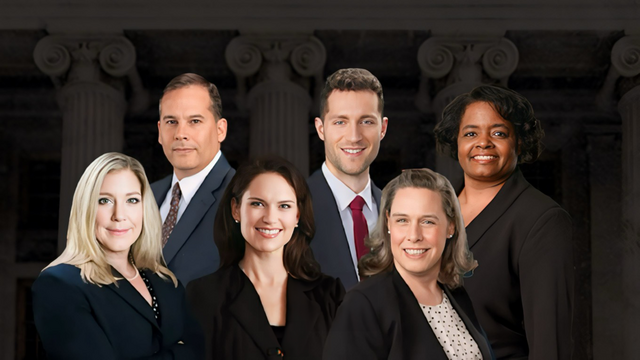Stafford County Fraud Appeals
There are two levels of appeal in Virginia. The kind of appeal determines how likely it is to be granted. If a person is charged with a misdemeanor fraud offense and loses the trial, Virginia law provides the absolute right to appeal and receive a new trial in the circuit court. When there is a conviction in a circuit court, the question is how likely it is that one of the appellate courts in Virginia, in this case, it is the Virginia Supreme Court, is going to take the case.
To answer that question, the lawyer looks at whether there was an error committed in the trial process, whether a jury was improperly instructed, or whether the evidence was mistakenly allowed or disallowed. If one of those things occurred in a person’s case, there is a possibility that the Virginia Supreme Court will hear the appeal. It is important to know that most cases that are appealed to the Virginia Supreme Court are rejected and are never heard.
When being convicted of a fraud charge, then you need to call a Stafford County fraud lawyer so that they can get you familiar with the appeals process. Experienced fraud lawyers are very helpful when it comes getting appeals together on your behalf.
Facing Fraud Charges
Innocent people are charged with fraud all the time. This is not to say that most fraud charges relate to innocent people. Because it is easy to make this kind of accusation, innocent people do get tied up in it. For example, an angry romantic partner claims that transactions were made, cards were used, or other things were done without permission when, in fact, they were done with permission. Someone who is innocent may find themselves facing a fraud charge in that situation.
Filing an Appeal
In most cases with appealing fraud in Stafford County from a circuit court to the Virginia Supreme Court, the lawyer looks over the record and the transcript of the trial to identify any errors in the process that may have occurred. The lawyer’s role is to articulate to the Supreme Court of Virginia why it should hear the case, overturn the verdict in the trial court, and order a new trial.
When filing a fraud appeal, a person should strongly consider the likelihood of success; the likelihood that the Supreme Court will hear their case. They should consider the cost involved.
A person might not want to file an appeal because it is an expensive process. When looking at the record of a person’s trial, the attorney may conclude there is no error in the process that the Supreme Court would review. In short, if the chances of success are small and the expense of attempting an appeal is high, a person might not want to go down that road.
Fraud Appeal Process
Appealing from the verdict of a circuit court can take from six months to more than a year. First, the appeal must be noted with the trial court. The trial court must be put on notice that an appeal is taking place. The trial court prepares a transcript and assembles all of the documents to be transmitted to the Virginia Supreme Court. The attorney for the defendant files a petition asking the Supreme Court to hear the case. The government may file an opposition, a document telling the court why it should not hear the case.
If the court does decide to hear the case, briefs must be filed by each side. If requested, all arguments are placed in front of a Virginia Supreme Court. Once that process is complete, the court renders a written decision. The decision does not happen immediately after oral arguments. In fact, in most cases, it can be three to six months or more before the court renders the written decision.
Contacting an Attorney
Appellate work is a specialized practice of law. It is different from the normal trial process. There are procedural pitfalls that an inexperienced lawyer might commit. It is important to have a lawyer with experience practicing before the appellate court who is proficient in filing the necessary documents and is familiar with the procedures to give their client the best chance to have the appeal fraud appeal in Stafford accepted by the court and acted upon by the court.




